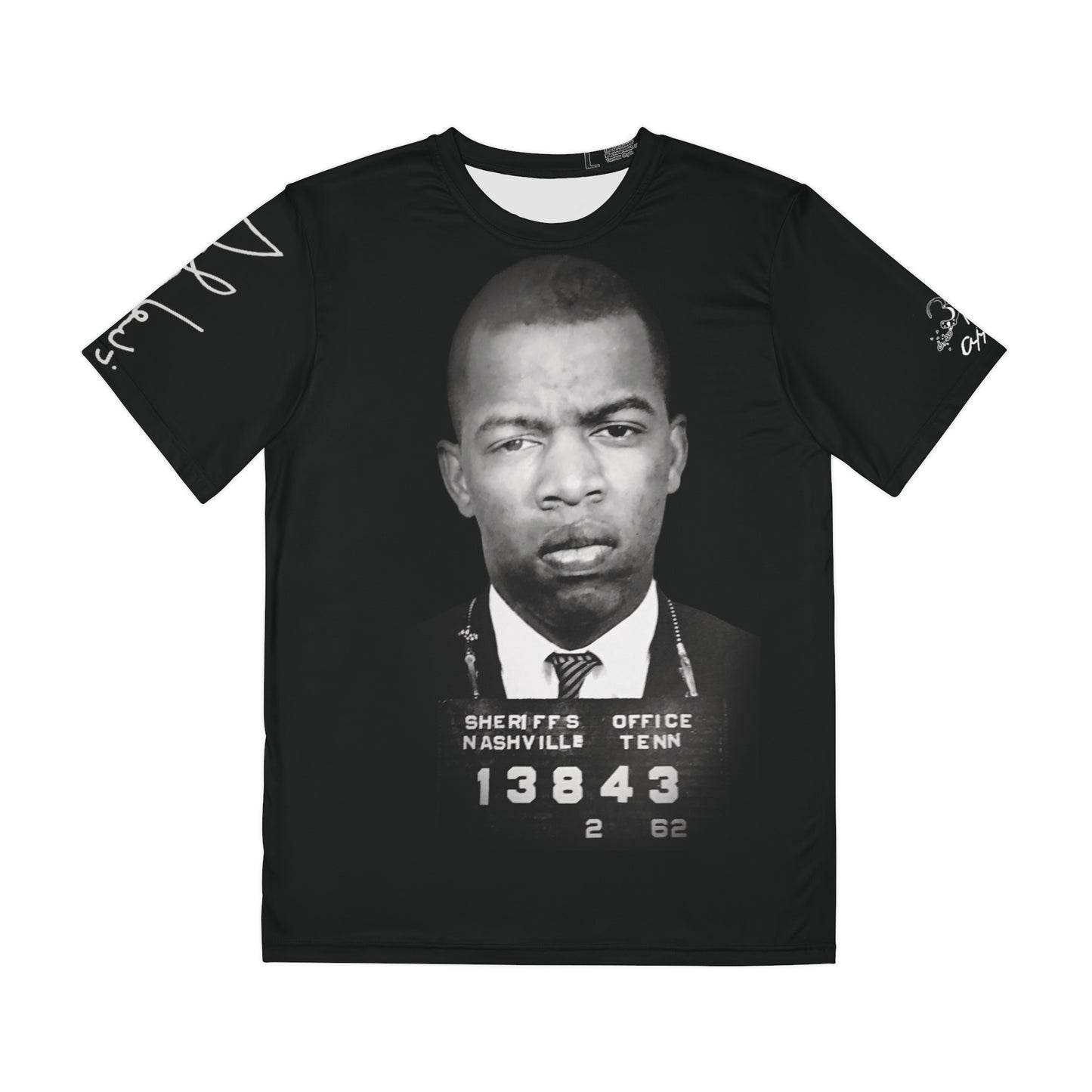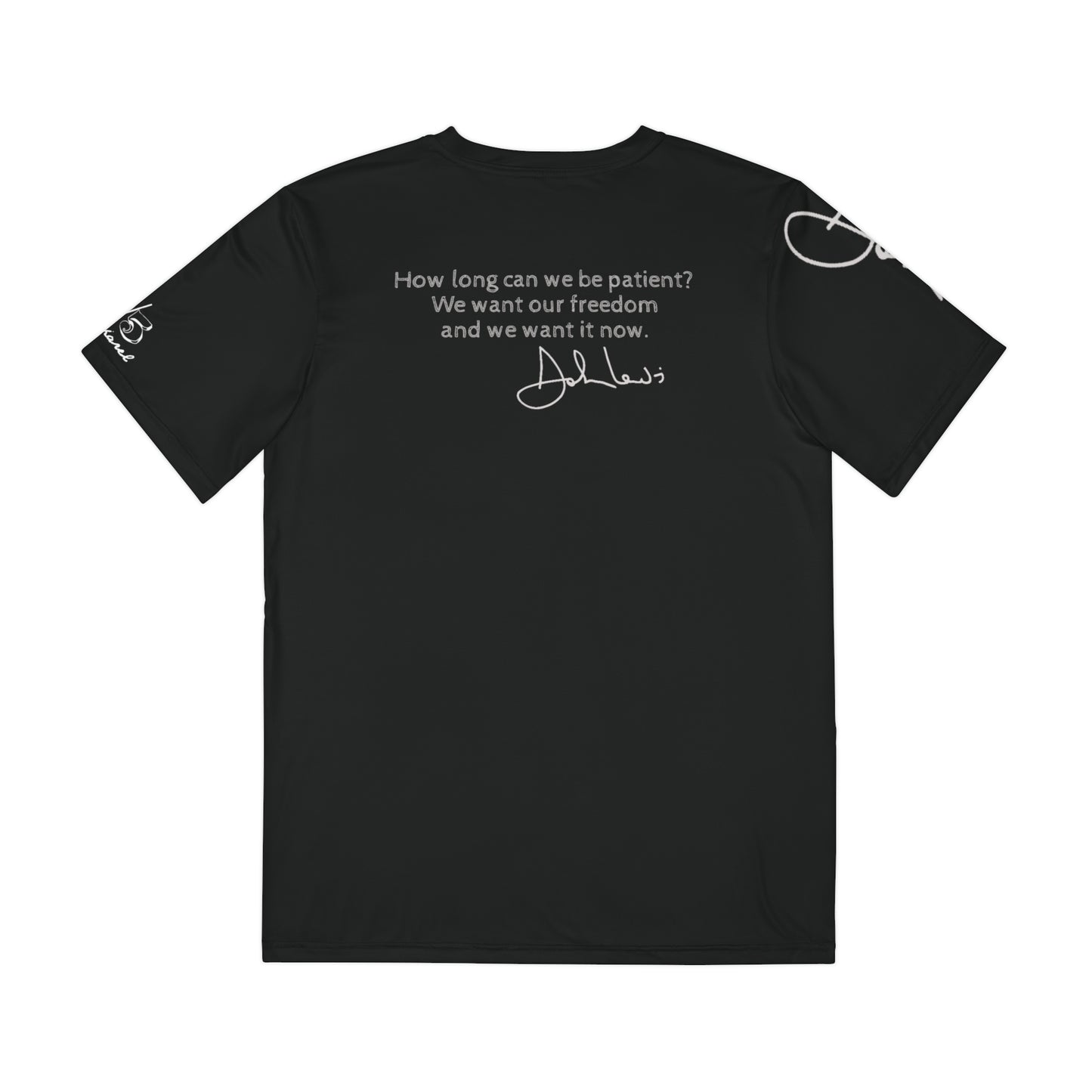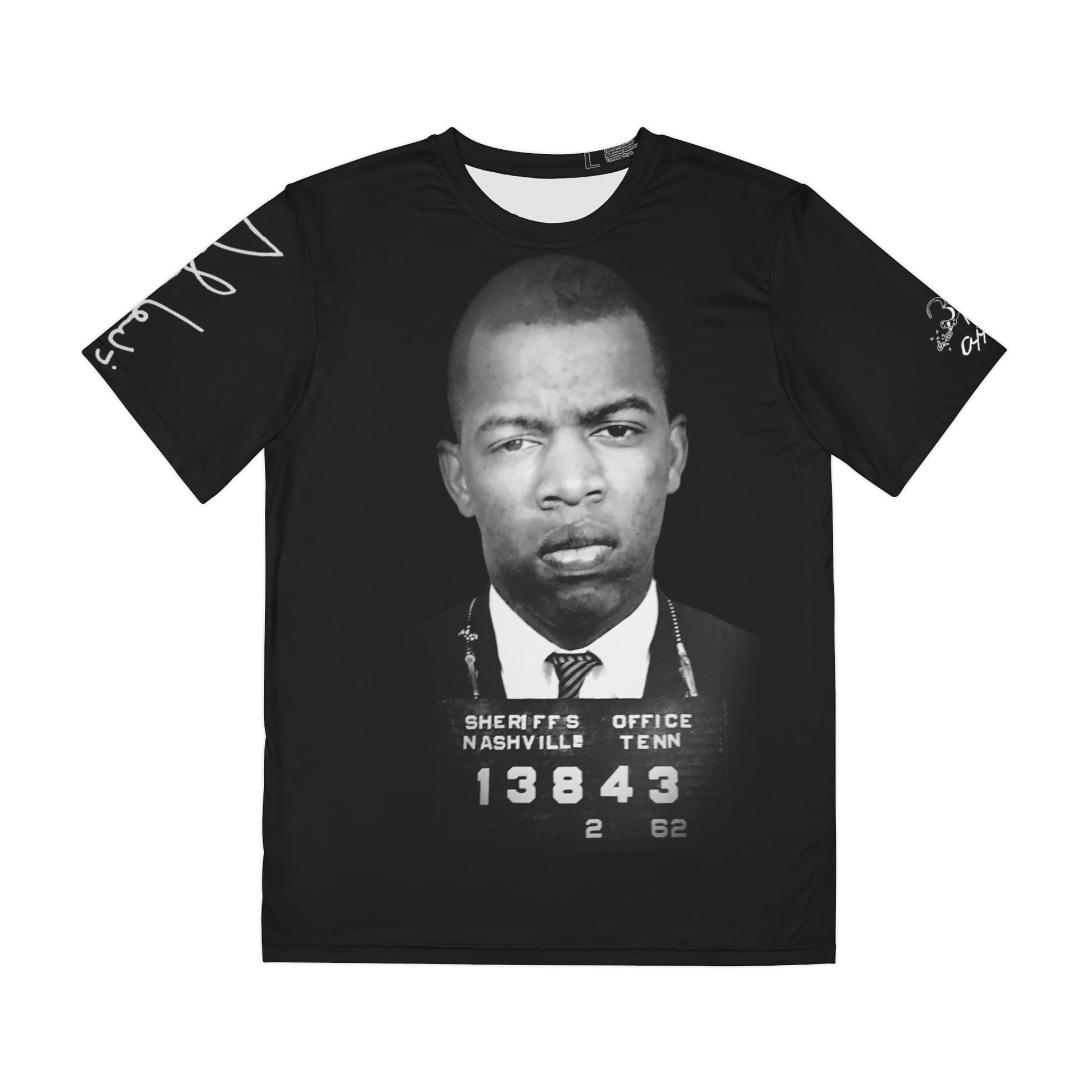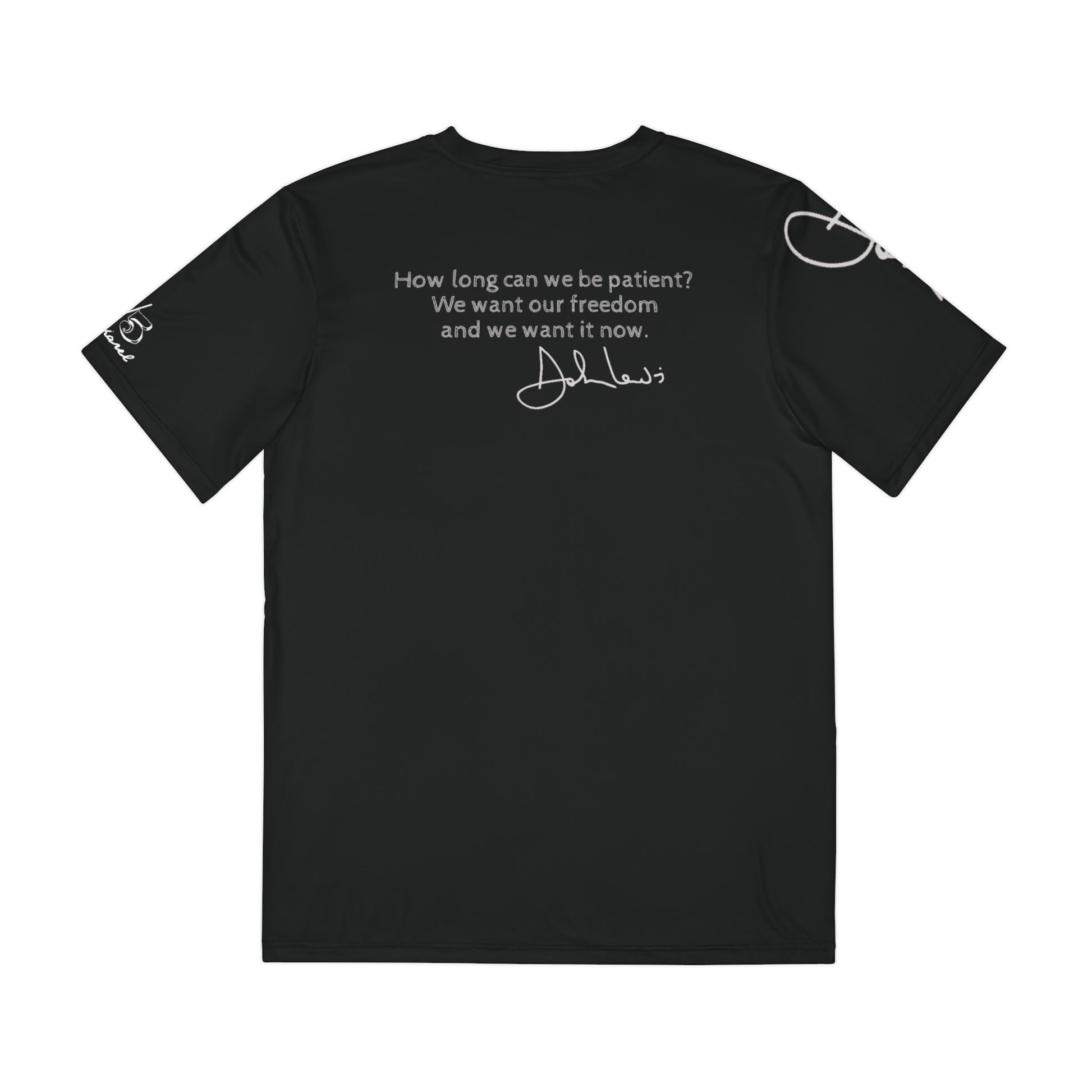Three Fif Apparel Signature Edition
John Lewis
John Lewis
Couldn't load pickup availability
John Lewis, born on February 21, 1940, in Troy, Alabama, was a central figure in the American civil rights movement and a lifelong advocate for social justice and racial equality. Growing up in the segregated South, Lewis experienced the harsh realities of Jim Crow laws and systemic racism, which fueled his commitment to fight for civil rights. He attended Fisk University, where he became deeply involved in the Nashville Student Movement and the sit-in protests aimed at desegregating lunch counters. As one of the original Freedom Riders in 1961, Lewis faced brutal violence and arrest as he challenged segregation in interstate bus travel. His dedication to nonviolent protest and his courage in the face of adversity quickly established him as a prominent leader in the movement.
John Lewis's impact on black liberation is perhaps best exemplified by his role as chairman of the Student Nonviolent Coordinating Committee (SNCC) from 1963 to 1966. Under his leadership, SNCC played a crucial role in major civil rights campaigns, including the March on Washington in 1963, where Lewis was the youngest speaker. One of the most pivotal moments in Lewis's activism occurred on March 7, 1965, known as "Bloody Sunday," when he led over 600 peaceful protesters across the Edmund Pettus Bridge in Selma, Alabama, to demand voting rights. The brutal attack on the marchers by state troopers was televised, shocking the nation and galvanizing support for the civil rights movement. This event was instrumental in the passage of the Voting Rights Act of 1965, a landmark achievement in the fight for black liberation.
Throughout his life, John Lewis continued to advocate for justice and equality. Elected to the U.S. House of Representatives in 1986, he served Georgia's 5th Congressional District until his death in 2020. In Congress, Lewis was known as the "conscience of the House," consistently championing human rights, health care reform, and policies to reduce poverty and inequality. His commitment to nonviolence and social justice inspired countless individuals and movements, reinforcing the principles of the civil rights movement. John Lewis's enduring legacy is a testament to his unwavering dedication to the cause of black liberation, highlighting the power of perseverance and moral integrity in the ongoing struggle for equality and justice.
Books by John Lewis:
https://www.marcusbooks.com/search/author/%22Lewis%2C%20John%22



Material
Material
A t-shirt with a print just hits different. Keep your look bold yet chill with this men’s crew neck t-shirt. It’s so smooth, stretchy, and comfortable you’ll want to wear it all the time.
• 95% polyester, 5% elastane (fabric composition may vary by 1%)
• Premium knit mid-weight jersey
• Four-way stretch fabric that stretches and recovers on the cross and lengthwise grains
• Regular fit
• Blank product components in the US and Mexico sourced from the US
• Blank product components in the EU sourced from Lithuania
This product is made especially for you as soon as you place an order, which is why it takes us a bit longer to deliver it to you. Making products on demand instead of in bulk helps reduce overproduction, so thank you for making thoughtful purchasing decisions!
• Traceability:
- Knitting—Lithuania
- Dyeing—Poland
- Manufacturing—Latvia
• Contains 0% recycled polyester
• Contains 0% dangerous substances
• This item releases plastic microfibers into the environment during washing
Shipping & Returns
Shipping & Returns
We are a family-owned small business start up. Please respect our decision to not offer refunds at this time.
Dimensions
Dimensions
Size guide
CHEST (inches)
XS 31 ⅛
S 34 ¼
M 37 ⅜
L 42 ⅛
XL 46 ⅞
2XL 51 ⅝
CHEST (cm)
XS 79
S 87
M 95
L 107
XL 119
2XL 131
Care Instructions
Care Instructions
Wash cold. Tumble on low.
Share



